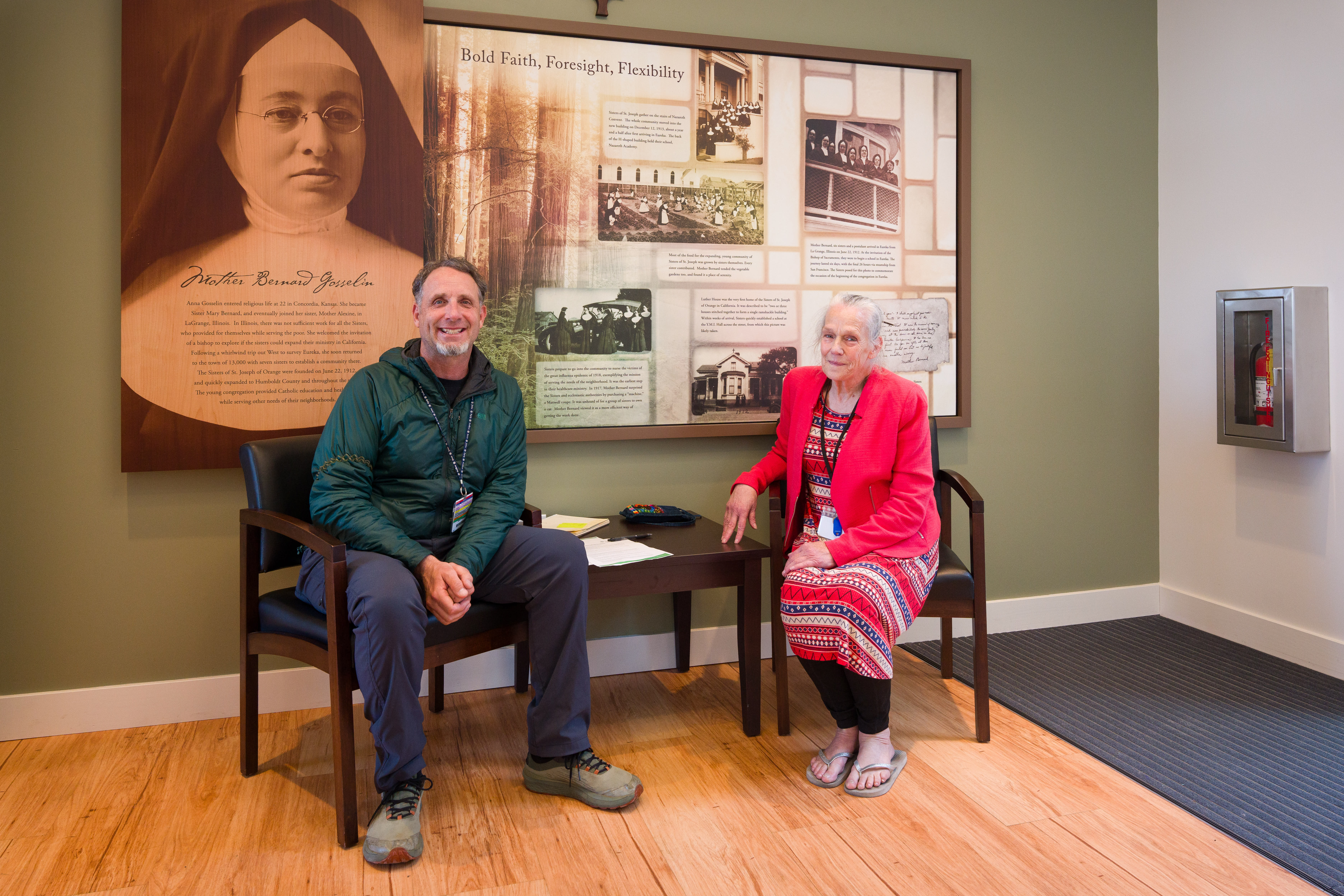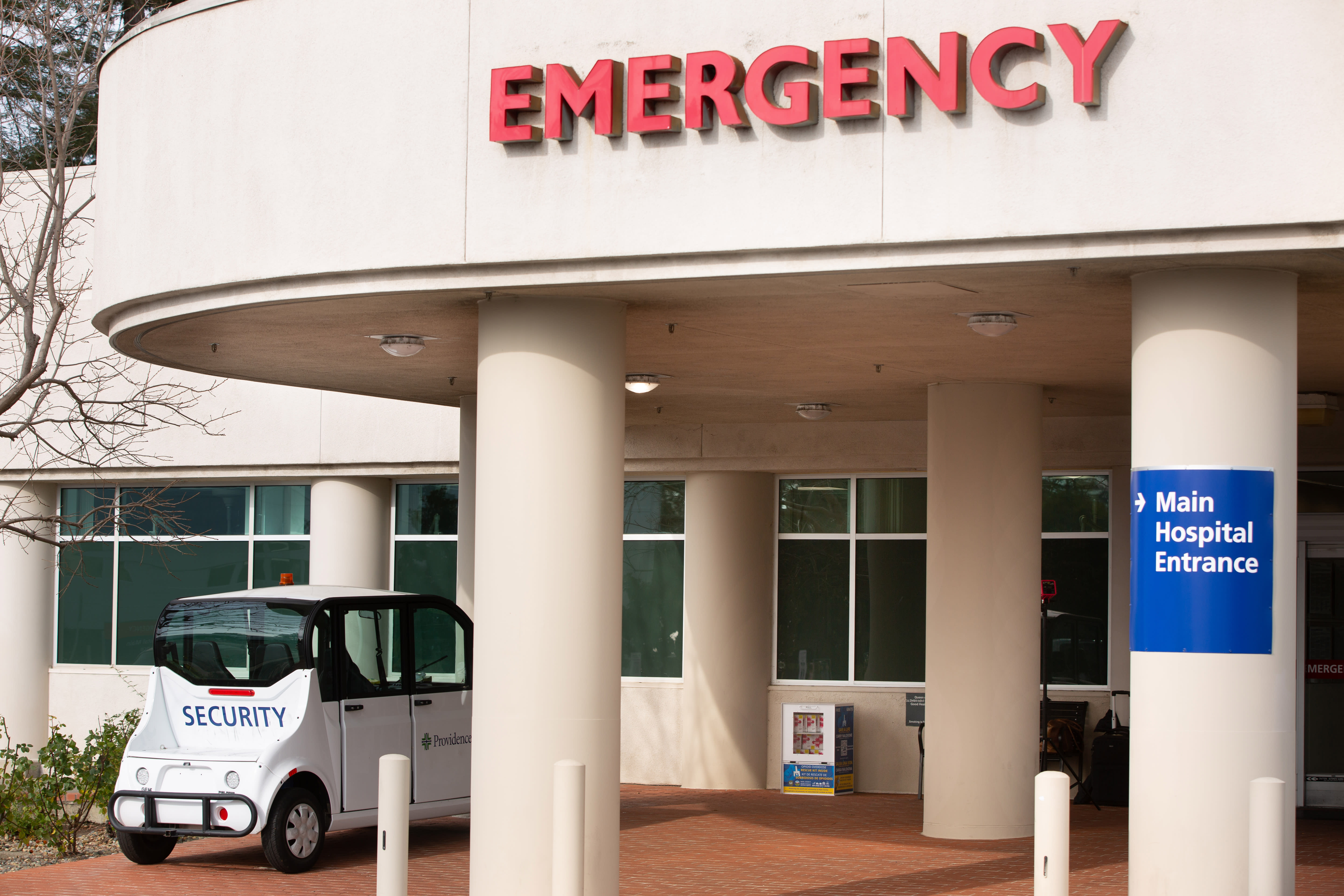Meeting people where they are to bridge health gaps
Reducing barriers to care | Access to community-based care
Having access to quality, affordable health care is an important foundation for a better quality of life, also known as a social determinant of health*. When individuals or groups of people experience ongoing barriers to care, they may also experience health disparities. Providence is taking action to reduce and eliminate these disparities, and a key strategy is by listening to and then partnering with community organizations in several states. As a family of organizations, we are committed to ensuring equal access to care for historically marginalized and/or underserved populations.
Southern California: Health screenings in barbershops and beauty salons
Hypertension – or high blood pressure – is a priority focus for Providence in Los Angeles and for our community partner, Live Chair Health, a nonprofit organization that is creating a network of clinical and non-clinical resources to reduce health disparities among minority populations. Inside trusted spaces such as barbershops, beauty salons and churches, Live Chair Health is creating more access points for people to get health care screenings, resources and education for life-threatening conditions.
In 2021, Providence became Live Chair Health’s first west coast partner as part of a broader commitment to reach 100,000 people through our hypertension reduction project. Live Chair Health installed blood pressure cuffs at kiosk stations in barbershops and salons and trained staff to serve as community liaisons inside their business. They are equipped to communicate with customers about the benefits – and often necessity – of preventive screening.
Once customers complete a screening and get set up in Live Chair Health’s system, they have access to a complete health care journey including recommendations for a primary care provider, a Smartphone app to track vital readings and reminders to seek additional services. The partnership between Providence and Live Chair Health works because of established local relationships that flourish with the right support.
Northern California: Equipping parents during the pandemic
In Humboldt County, Providence’s Paso a Paso (Step by Step) program provides free health education and assistance to members of the Latinx community who are parents or preparing for parenthood. Expert, bilingual caregivers connect with community members through the Paso a Paso program to offer a wide range of support, including childbirth education and preparation, parenting classes, home visits, postpartum counseling, and infant and child wellness checks.
In 2021, Paso a Paso received $688,397 in Providence community benefit funding to provide care and services to members of the Latinx community in Humboldt County.
Paso a Paso offers 200 classes and support groups each year, and since 2020, many of those classes have moved online to provide continuity for families throughout the COVID-19 pandemic. Families appreciate interacting with a caregiver who understands their culture and speaks their primary language. With highly personal and culturally competent care, family members are more comfortable asking questions or committing to follow-up care.
Octavio and Guadalupe are dedicated to their two daughters, ages 3 and 4, who have complex health needs. They live in Eureka and all enjoy coming to Paso a Paso events, where they feel included and supported.
In 2021, Providence provided Paso a Paso with $688,397 in community benefit support to ensure members of the Latinx community in Humboldt County continue to receive care, navigation support, and advocacy from a health care professional who speaks their first language.
Oregon: Supporting survivors of domestic violence
In the coastal town of Astoria, Oregon, the team at The Harbor knows that domestic violence can affect anyone – people of all backgrounds, cultures and income levels – in this community of 10,000. Using a trauma-informed empowerment model, The Harbor experts validate a person’s strengths, instill confidence and provide care tailored to each survivor’s unique needs.
In situations where victims may lack financial independence from their abusers, The Harbor has partnered with Financial Beginnings, a nonprofit organization expert in financial literacy education and empowerment. In the fall of 2021, The Harbor staff were trained by Financial Beginnings so the two organizations can co-lead financial workshops in 2022.
In 2021, Providence in Oregon provided a $25,000 community benefit grant to support a range of The Harbor’s lifesaving and life-changing services for domestic violence survivors. It is the only program of its kind on the North Coast.
To better reach under-resourced communities and provide culturally respectful services, in 2021 The Harbor trained its team in diversity, equity and inclusion – including implicit bias. The Harbor has formed a trusted alliance with a local nonprofit organization, the Q Center, to build even more inclusive programming and services for members of the LGBTQIA+ community. There was more work to do, and The Harbor sent a health coordinator into Latinx communities who was a well-known, trusted and respected community leader. Her outreach efforts led to a series of eight online Spanish-language workshops in 2021 about healthy relationships.
Thanks to our community partners leading these local and culturally competent programs, access to care is increasing by meeting people where they are. This includes helping people navigate complex systems, providing resources and information, and ensuring respectful care is available to all. Providence is honored to work alongside such organizations, reducing barriers and improving health equity for the most vulnerable among us.
*Social determinants of health include factors like socioeconomic status, education, neighborhood and physical environment, employment, and social support networks, as well as access to health care. Addressing social determinants of health is important for improving health and reducing longstanding disparities in health and health care.



